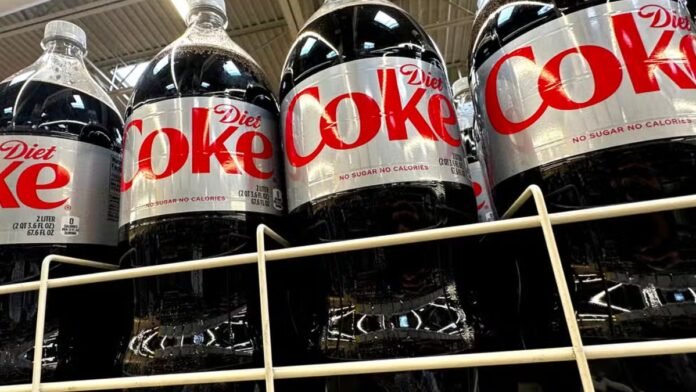The WHO may label aspartame as a probable cancer risk. IARC will label the popular sweetener as “possibly carcinogenic to humans”. Critics say that the IARC’s evaluations are unclear and based on discredited research.
The World Health Organization (WHO) may label aspartame, a sweetener used in Diet Coke and other popular goods, a probable cancer risk.
According to a news outlet, the International outlet for Research on Cancer (IARC) will label the popular sweetener as “possibly carcinogenic to humans” in July.
The move is anticipated to pit the world’s premier health agency against the food industry and regulators, and the sector has already criticized it.
The IARC’s external experts convened earlier this month to decide if anything is a possible danger based on all available information.
It ignores safe product consumption. JECFA, a WHO food additive expert body, and country regulators advise on this.
However, comparable IARC verdicts for other drugs have aroused consumer concerns, led to litigation, and forced producers to rewrite formulations and switch to alternatives. Critics say the IARC’s evaluations are unclear.
IARC rulings have been criticized for alarming people about hard-to-avoid drugs or circumstances. It previously classified working overnight, eating red meat, and using mobile phones as “probably cancer-causing”.
“IARC is not a food safety body and their review of aspartame is not scientifically comprehensive and is based heavily on widely discredited research,” said ISA secretary general Frances Hunt-Wood.
Mars Wrigley, Coca-Cola, and Cargill are among the body’s members.
Kate Loatman, executive director of the International Council of Beverages Associations, said the “leaked opinion” should “deeply concern” public health authorities and “could needlessly mislead consumers into consuming more sugar rather than choosing safe no- and low-sugar options.”
This year, JECFA, the WHO additives committee, is examining aspartame use. It began meeting at the end of June and will release its conclusions on July 14, the same day as the IARC.
JECFA has declared aspartame safe within daily limits since 1981. US and European regulators agree with it.
IARC’s determination was “the first fundamental step to understand carcinogenicity,” according to an IARC representative.
Years of research have examined aspartame. Last year, a 100,000-person French observational research found that persons who used more artificial sweeteners like aspartame had a slightly greater cancer risk.
In the early 2000s, the Ramazzini Institute in Italy connected aspartame to various malignancies in mice and rats.
However, the first research could not verify that aspartame caused the increased cancer risk, and EFSA, which reviewed the second study, questioned its methodology.
Global regulators have approved aspartame for use after reviewing all the facts, and major food and beverage companies have defended its usage for decades. In June, IARC reviewed 1,300 papers.
Pepsico’s formula changes show the industry’s effort to balance flavor and health. In 2015, Pepsico withdrew aspartame from drinks, only to reinstate it in 2020.
According to IARC sources, listing aspartame as a potential carcinogen would encourage greater study to assist agencies, consumers, and producers make better decisions.
Conclusion:
The World Health Organization (WHO) is expected to label aspartame, a sweetener used in Diet Coke, as “possibly carcinogenic to humans.” The International Institute for Research on Cancer (IARC) has criticized the IARC’s evaluations, which have raised concerns about hard-to-avoid drugs and circumstances. Critics argue that the IARC’s evaluations are unclear and based on discredited research. The move is expected to pit the world’s premier health agency against the food industry and regulators, with the sector already criticized it. The IARC’s external experts convened earlier this month to decide if anything is a possible danger based on all available information.
However, comparable IARC verdicts for other drugs have aroused consumer concerns, led to litigation, and forced producers to rewrite formulations and switch to alternatives. The International Council of Beverages Associations (ICAB) has already criticized the IARC’s evaluations, stating that they are not scientifically comprehensive and based heavily on widely discredited research.



